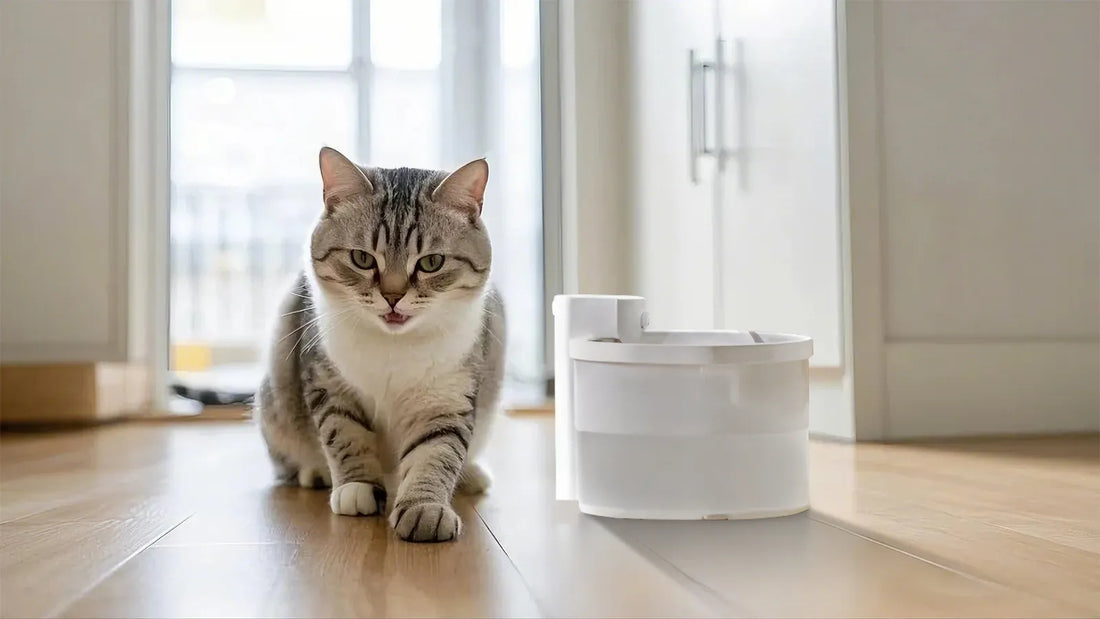If you've noticed your dog drinking more water than usual, it's natural to feel concerned. While dogs, like humans, need water to stay hydrated, excessive drinking can sometimes indicate an underlying issue. Understanding the reasons behind this behavior can help you determine whether it's a harmless habit or a sign of something more serious.
Normal Water Consumption for Dogs
Before jumping to conclusions, it's important to know what constitutes normal water intake for dogs. On average, a healthy dog should drink about one ounce of water per pound of body weight daily. For example, a 20-pound dog would typically drink around 20 ounces of water each day. However, this can vary based on factors such as activity level, diet, and weather conditions.
Common Reasons for Increased Water Intake
There are several reasons why your dog might be drinking more water than usual. Some of these are harmless, while others may require veterinary attention.
Hot Weather or Increased Activity
During hot weather or after vigorous exercise, dogs naturally drink more water to cool down and rehydrate. This is a normal response and nothing to worry about as long as your dog has access to fresh water and isn't showing signs of overheating.
Dietary Changes
If you've recently switched your dog to a dry food diet, they may drink more water to compensate for the lack of moisture in their meals. Similarly, salty treats or foods can increase thirst.
Medications
Certain medications, such as steroids or diuretics, can cause increased thirst in dogs. If your dog has started a new medication and you notice a change in their water intake, consult your veterinarian to determine if this is a normal side effect.
Health Conditions Linked to Excessive Drinking
While some causes of increased water consumption are benign, others may indicate a health problem. Here are some conditions that could be behind your dog's excessive thirst.
Diabetes
Diabetes mellitus is a common condition in dogs that can lead to increased thirst and urination. If your dog is drinking more water and also showing signs such as weight loss, increased appetite, or lethargy, it's important to seek veterinary care.
Kidney Disease
Kidney disease can impair a dog's ability to concentrate urine, leading to increased water intake. Other symptoms may include vomiting, loss of appetite, and changes in urination patterns.
Cushing's Disease
Cushing's disease, or hyperadrenocorticism, is caused by an overproduction of cortisol. This condition can lead to excessive thirst, increased urination, and a pot-bellied appearance. If you suspect your dog may have Cushing's disease, consult your veterinarian for a proper diagnosis.
Urinary Tract Infections
Urinary tract infections (UTIs) can cause increased thirst and frequent urination in dogs. Other signs may include straining to urinate, blood in the urine, or accidents in the house.
Behavioral Factors
Sometimes, increased water intake can be linked to behavioral factors rather than medical issues.
Boredom or Anxiety
Dogs may drink more water out of boredom or anxiety. If your dog is left alone for long periods or is experiencing stress, they might turn to drinking water as a coping mechanism.
Learned Behavior
If your dog has learned that drinking water gets them attention or rewards, they may start drinking more frequently. This is especially common in dogs that are highly food-motivated or seek interaction with their owners.
When to Seek Veterinary Care
While occasional increases in water intake may not be a cause for concern, persistent or excessive drinking should be evaluated by a veterinarian. Here are some signs that it's time to seek professional advice:
- Your dog is drinking significantly more water than usual for an extended period.
- They are urinating more frequently or having accidents in the house.
- You notice other symptoms such as lethargy, weight loss, or changes in appetite.
- Your dog's behavior has changed, and they seem anxious or restless.
Monitoring Your Dog's Water Intake
If you're concerned about your dog's water consumption, keeping a daily log can help you track their intake and identify patterns. Measure the amount of water you provide each day and note how much is left at the end of the day. This information can be valuable when discussing your concerns with your veterinarian.
Preventing Dehydration and Overhydration
While excessive drinking can be a problem, it's also important to ensure your dog stays properly hydrated. Here are some tips to help maintain a healthy balance:
- Provide fresh, clean water at all times.
- Monitor your dog's water intake, especially during hot weather or after exercise.
- Avoid giving your dog salty treats or foods that can increase thirst.
- Encourage regular bathroom breaks to prevent overhydration.
Final Thoughts
If your dog is drinking more water than usual, it's essential to pay attention to their overall behavior and health. While some causes are harmless, others may require medical intervention. By understanding the potential reasons behind this behavior and monitoring your dog's habits, you can ensure they stay happy and healthy. If you're ever in doubt, don't hesitate to consult your veterinarian for guidance.













